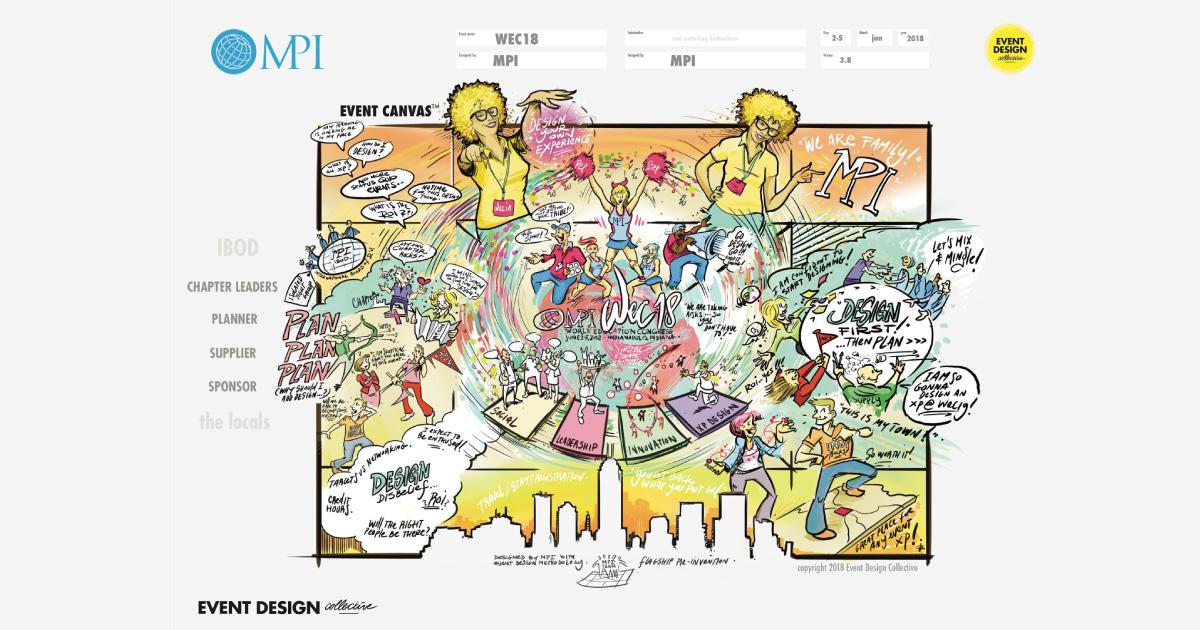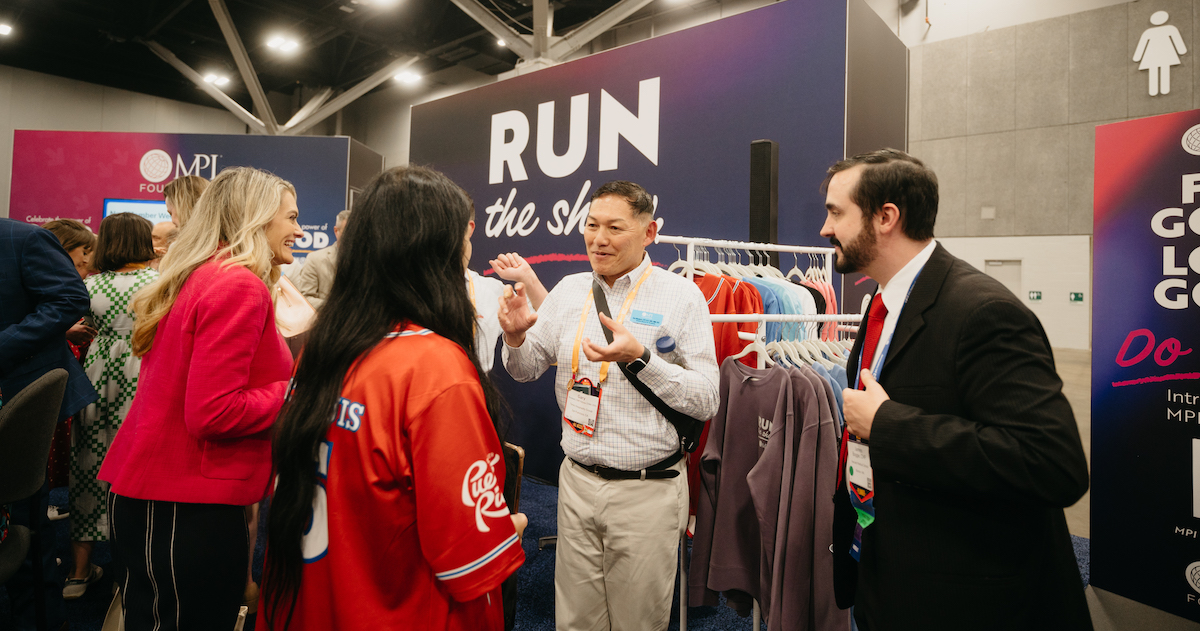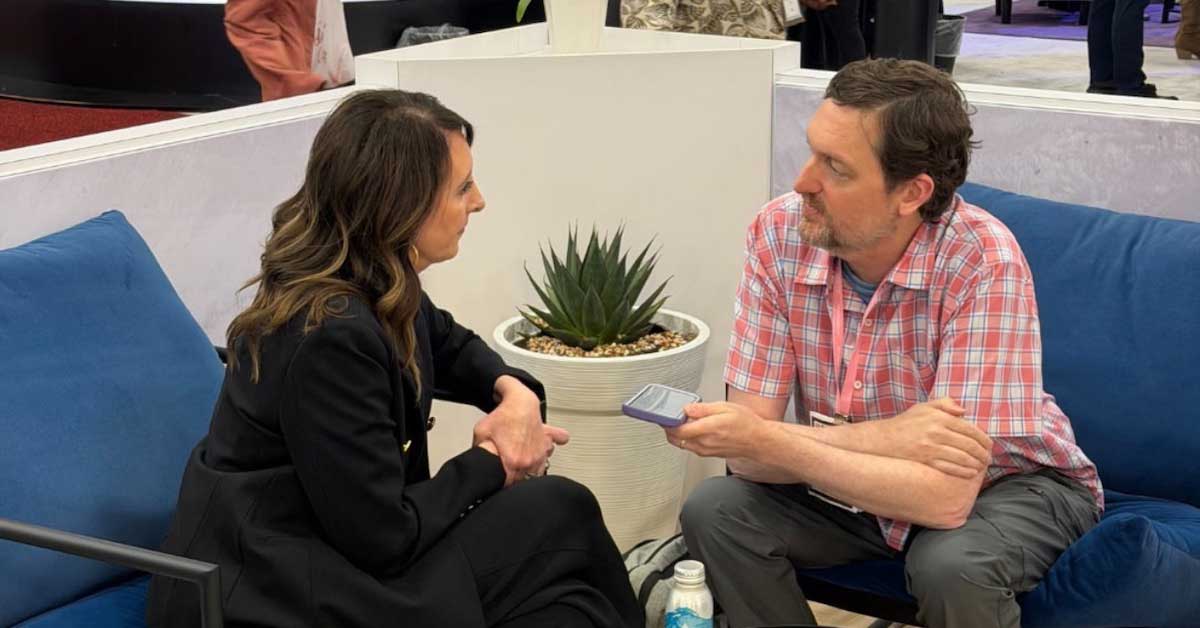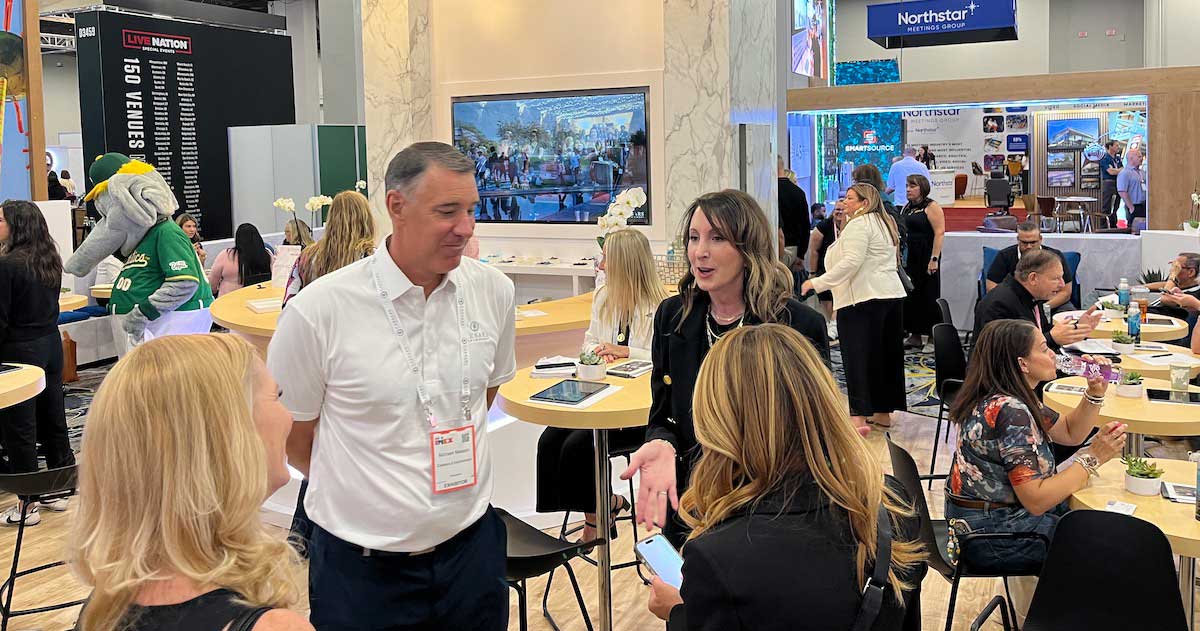Perhaps the key fact that planners ranging from the most experienced to the most novice should know about #EventCanvas™, an event design template launched at the 2014 MPI World Education Congress (WEC) and surging in worldwide popularity nowadays, is that it does, indeed, involve an actual canvas.
Roel Frissen and Ruud Janssen, themselves well-experienced and insightful event creators, are the inventors of #EventCanvas and the co-founders of the Event Design Collective. Their Europe-based enterprise uses #EventCanvas for its own clients, which include groups ranging from the International Olympic Committee to the Global Spine Congress. They also teach the usage of the template in workshops and certification programs around the world.
The creators say their canvas is not just a useful collaborative tool, but also enables teams to look at the big-picture goals they have for the event design process. In a word, they want to see event design “democratized.” They want to help the event owner bring a broader range of stakeholders into the process systematically.
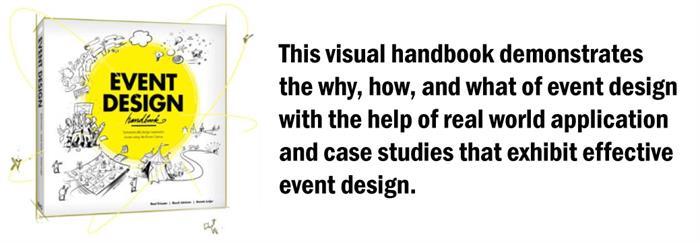
Having an entire event design reduced to a single sheet of paper makes the process more approachable—anybody can go over the 14 building blocks on the canvas and grasp the “how to” nature of it, and anybody can replicate it for themselves. Frissen and Janssen like that the canvas promotes inclusiveness and everyone from novices to sage planners can come to the table—together.
Janssen says the combination of experience levels involved in designing an event becomes important because the experienced planners know how to work with the framework of limitations such as budgets, and novices’ lack of knowledge of those limitations allows them to unleash their creativity.
“We find that the more diverse the group is, the better the event designs they create,” Janssen says.
Another key to involving as many stakeholders in the process as possible is that they all tend to bring different perspectives that allow the design of experiences that will be meaningful to a broader cross section of event participants.
If anyone doubts that Frissen and Janssen are serious about sharing their innovative approach with the world, just go to EventCanvas.org, where both the canvas itself and the first 100 pages of the Event Design Handbook can be downloaded for free.
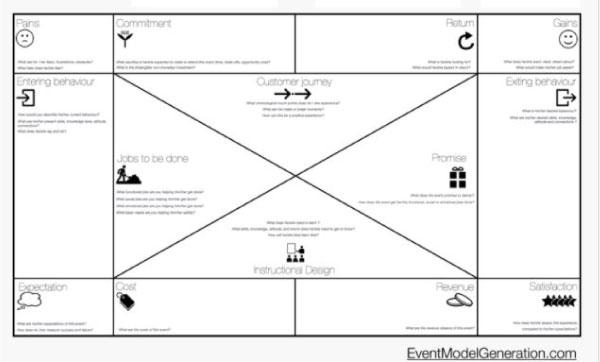
And if one doubts the worldwide accolades that #EventCanvas is receiving, the platform is being used to re-design the 2018 WEC and was also used in the design of the 2017 MPI European Meetings & Events Conference in Granada, Spain.
The planning team for WEC 2018, who got together at MPI headquarters in Dallas and at the event site in Indianapolis, expressed excitement about what the new platform offers.
“On the ground in Indianapolis to help make WEC 2018 Event Design reality for MPI,” Miranda van Brück, program director, events for MPI, tweeted in November. “What an amazing journey to re-design THE conference for conference organizers using the #EventCanvas design process.”
Frissen and Janssen say that they are flattered that their methodology has received such widespread acceptance, and that they are also excited about how the spread of canvas usage can help achieve their original goal when they created the #EventCanvas in 2013—a common language for event design.
Frissen says that while good events were created without the #EventCanvas methodology in the past, the majority of events lack the ability to deliver behavior change as intended by the event owner. The birth of #EventCanvas was a move to change that reality.
“The 10 Event Design Collective team members have met through MPI and operate on a global level,” according to the Event Design Collective Facebook page. “The Event Design Collective is the grown-up name of the original startup called Event Model Generation started by Roel Frissen and Ruud Janssen, who believe the meeting and event profession is a serious profession, without serious tools. Based on their vision to create a common language for events, a highly visual and open source, the effort is now expanding into the Event Design Collective. The #EventCanvas is a visual chart with elements describing an event’s promise, how it helps stakeholders to get their jobs done, resolving pains and creating gains within a set framework of commitment and expected return. The canvas articulates how the behavior changes as a result of having participated in the event as well as stating the required levels of satisfaction against expectations. Additionally, the canvas outlines the costs and expected revenues in relation to the experience journey (service design) and the instructional design of the event.”
The word “template” becomes important because the last thing Frissen and Janssen want is for event designers to use the canvas as a checklist that allows a quick and uninspired effort at throwing together an event. They believe there is a direct relationship between putting the right amount of time, effort and imagination into the design process and the quality of the event design prototypes.
“You have got to get down in the mud with the event owner’s challenge,” Frissen says—in other words, really embracing and digging into the problem, and dissecting stakeholder needs to define the behavior change.
The Event Design Collective team conducts training sessions and certificate programs around the world, ranging from San Diego State University in California to the MPI + SITE Global Forum in Rome to Ryerson University in Toronto.
SIDEBAR
#EventCanvas™ and the Redesign of WEC
“After having applied the approach for the 2017 MPI European Meetings & Events Conference, it was very gratifying to see MPI embrace event design using the #EventCanvas™ methodology for the design of the 2018 World Education Congress (WEC) in Indianapolis,” says #EventCanvas co-creator Ruud Janssen. In a series of design sprints, the team led by Certified Event Designers Miranda van Brück and Terri Breining, CMM, CMP, have analyzed and aligned the stakes of the various stakeholders, framed the design and then prototyped options for WEC.
“MPI’s leadership team is not just talking the talk, but walking the walk, and we believe this will be reflected in the upcoming editions of the WEC as an extraordinary experience,” Janssen says.
Visit www.mpiweb.org/wec18 for more information on registering for World Education Congress (WEC) 2018.
About the Founders
Switzerland-based Ruud Janssen, CMM, DES, and Netherlands-based Roel Frissen, CMM, have long experience in the meeting industry and have been members of the MPI International Board of Directors. Janssen has degrees in hospitality marketing from the Hotel Management School Maastricht and Cornell University in Ithaca, N.Y. He is an accredited trainer for MPI Global Training and a visiting lecturer at San Diego State University, Warsaw School of Tourism & Hospitality Management, Hogeschool Zuyd and the University of Amsterdam. Frissen has studied Hotel Management at Stenden University, the Netherlands and is also visiting lecturer at a number of universities, such as San Diego State University, Stenden University and the University of Amsterdam.
